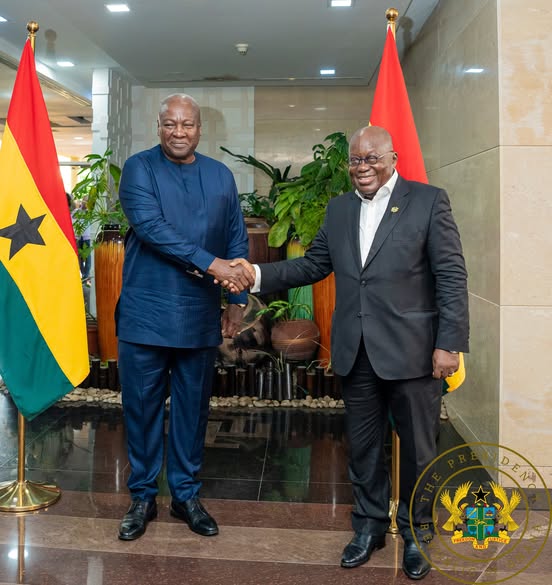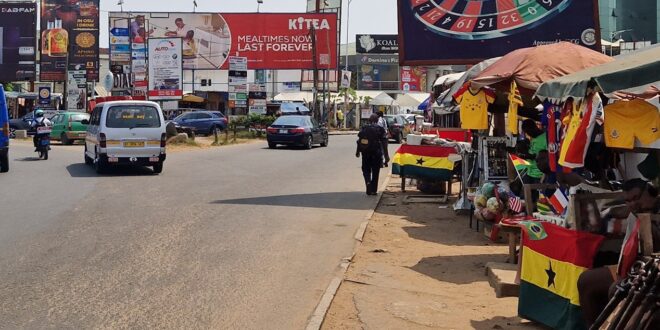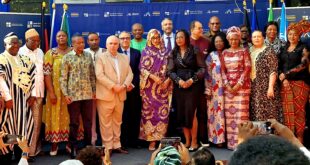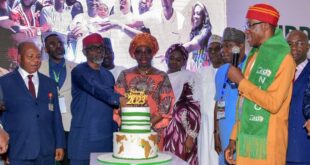In early December 2024, Ghana made headlines across the globe as John Dramani Mahama of the National Democratic Congress (NDC) won the presidential election, defeating the ruling New Patriotic Party (NPP) candidate, Vice President Mahamudu Bawumia. This marks the fourth time since the nation’s return to multiparty democracy in 1992 that an opposition candidate has successfully unseated a ruling party, reinforcing Ghana’s reputation as a model of democratic governance in Africa.
“The people of Ghana have spoken, the people have voted for change at this time and we respect it with all humility,” Bawumia said at a news conference on Sunday (8 December). The defeat in the election, which was held a day earlier, ends two terms in power for the governing NPP under President Nana Akufo-Addo.
The NDC not only reclaimed the presidency but also secured a decisive victory in Ghana’s parliamentary elections, clinching a two-thirds majority. The NDC’s sweeping success is widely seen as a response to public frustration over economic challenges, including soaring inflation, currency instability and mounting debt under the NPP.

John Mahama’s historic return to power – making him the first president in Ghana’s Fourth Republic to reclaim the presidency after being voted out – signals a profound shift in the political landscape. Mahama, who served as president between July 2012 and January 2017, ran on a platform promising to “reset” the country. He pledged to tackle corruption head-on and implement reforms to revive Ghana’s ailing economy.
With control of both the presidency and parliament, Mahama is well-positioned to drive his agenda for change, although the expectations of Ghanaians are higher than ever.
A Win for Democracy in Ghana and Africa
John Mahama’s victory underscores the strength and resilience of democratic institutions in Ghana, offering an inspiring narrative for the rest of the continent. Peaceful electoral transitions remain a rarity in many African nations, where elections are often marred by allegations of manipulation, voter suppression and violence. Ghana’s 2024 election not only demonstrated a credible voting process but also featured a gracious concession by Vice President Bawumia, who called for unity and peace.
Ghana’s two main parties, the NPP and NDC, have alternated in power since the return to multi-party politics in 1992.
The implications of its democratic stability extend beyond Ghana’s borders. Democratic advocates across Africa see this as a reaffirmation of the continent’s potential to hold free and fair elections.
Former Nigerian President Olusegun Obasanjo congratulated Mahama, describing the election as “a victory for Africa’s democratic aspirations.”
United Nations Secretary-General António Guterres also commended Ghana, stating, “This peaceful transition is a testament to the maturity of Ghana’s democratic process and serves as a beacon of hope for the region.”
Other world leaders, including US President Joe Biden, South African President Cyril Ramaphosa, German Chancellor Olaf Scholz and UK Prime Minister Keir Starmer, extended congratulations to Mahama, emphasizing Ghana’s role as a pillar of stability in West Africa.
Challenges Ahead for Mahama
While optimism surrounds Mahama’s presidency, significant challenges await him. He returns to power at a time of significant economic strain. Ghana’s economy, once one of the fastest-growing in the world, has faced severe challenges, including inflation, currency devaluation and a debt crisis that necessitated a $3 billion bailout from the International Monetary Fund (IMF). The new president has vowed to address these issues by renegotiating aspects of the IMF deal, curbing government waste and prioritizing energy sector reforms to ensure stable electricity supply.
Another critical focus is the cocoa industry, a cornerstone of Ghana’s economy. Declines in production, exacerbated by illegal gold mining and climate change, have hurt this vital sector. Mahama has pledged to overhaul the Ghana Cocoa Board (COCOBOD) to enhance efficiency and support farmers.
“These economic challenges are not insurmountable,” Mahama said in his victory speech. “With the right policies and the collective will of Ghanaians, we will chart a path to prosperity.”
John Mahama’s Political Journey
Born in Damongo, northern Ghana, in 1958, John Dramani Mahama’s political career spans decades. He began as a Member of Parliament for Bole Bamboi in 1997 and later held ministerial positions. In 2009, he became Vice President under the late John Atta Mills, assuming the presidency in 2012 following Mills’ death. Mahama won the subsequent election that year but lost reelection in 2016 and 2020 to NPP’s Nana Akufo-Addo.
Despite his defeats, Mahama maintained a strong political presence, leveraging his experience and engaging in grassroots campaigns to secure the NDC candidacy for the 2024 elections. His landslide victory, with 56.55% of the vote, highlights his enduring popularity and the electorate’s desire for change amidst Ghana’s economic challenges.
New chapter for Ghana
John Mahama’s presidency represents a new chapter for Ghana. His leadership will be pivotal in addressing the nation’s economic challenges and further cementing its democratic credentials. Ghana’s peaceful transition and democratic vitality serve as a model for the African continent, offering hope for a future where elections reflect the will of the people.
As world leaders praise the nation for its exemplary process, the spotlight remains on Mahama’s administration to deliver on its promises and guide Ghana towards a prosperous future.
Femi Awoniyi & Felix Dappah
 THE AFRICAN COURIER. Reporting Africa and its Diaspora! The African Courier is an international magazine published in Germany to report on Africa and the Diaspora African experience. The first issue of the bimonthly magazine appeared on the newsstands on 15 February 1998. The African Courier is a communication forum for European-African political, economic and cultural exchanges, and a voice for Africa in Europe.
THE AFRICAN COURIER. Reporting Africa and its Diaspora! The African Courier is an international magazine published in Germany to report on Africa and the Diaspora African experience. The first issue of the bimonthly magazine appeared on the newsstands on 15 February 1998. The African Courier is a communication forum for European-African political, economic and cultural exchanges, and a voice for Africa in Europe.













